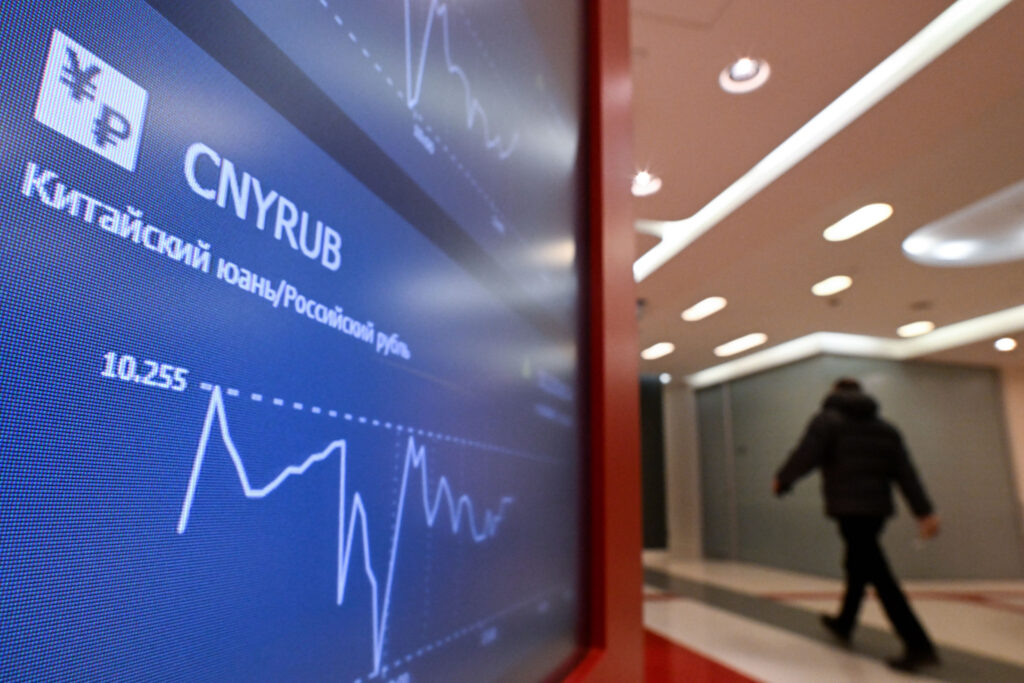China’s Financial Tightening on Russian Payments amid Geopolitical Sanctions
In the evolving landscape of international finance, Chinese banks have recently tightened restrictions on payments from Russia. This development follows Vladimir Putin’s full-scale invasion of Ukraine, which has spurred a multitude of sanctions from Western nations, aimed at crippling Russia’s war efforts. Despite the Russian president’s claims of booming trade with China, the reality is that Chinese financial institutions are growing increasingly wary of potential repercussions from these sanctions.
Rising Trade, Rising Concerns
The trade relationship between China and Russia has come under strain, largely due to sanctions that target Moscow’s military-industrial complex. A critical moment came in December 2023, when U.S. President Joe Biden issued an executive order threatening to cut off Chinese banks from the U.S. financial system if they were found engaging in trade with Russian military entities.
As a direct consequence of these sanctions, significant impediments have emerged in financial transactions between the two nations. The Russian division of the Bank of China has ceased processing yuan payments with Russian banks that have been sanctioned by the U.S. Similarly, other major Chinese banks, including ICBC and China CITIC Bank, have adopted comparable stances. This increasing caution is causing considerable delays and complications in cross-border payments.
The Impact on Financial Transactions
The Russian business newspaper Kommersant reported on July 29 that around 80 percent of payments in yuan are being returned to Russia, with transactions often taking several weeks only to be canceled without explanation. According to Alexei Sapozhnikov, managing partner of Sapozhnikov and Partners, funds for transactions frequently remain in correspondent accounts for up to 40 days before being returned, adding to the frustration of businesses on both sides.
Many Russian companies have been forced to resort to intermediaries or "trading houses" to facilitate transactions and move goods. However, this workaround comes at a high cost, increasing transactional expenses by up to 10 percent.
Unpredictability Looms Large
Pavel Bazhanov, a Russian lawyer specializing in supporting Russian businesses in China, highlights the unpredictability that now characterizes financial transactions between the two countries. "Sanctions disrupt ordinary trade—any Chinese business cannot be sure that the payment from Russia will be delivered at all or within a reasonable time," he noted. He pointed out that despite these obstacles, options still exist for making payments in Chinese yuan or Russian rubles, such as using VTB Shanghai Bank, a Chinese subsidiary of Russian VTB Bank, or smaller rural Chinese banks near the Russian border that engage predominantly in cross-border trade.
The Future of Cross-Border Payments
Looking ahead, Oleg Ushakov, founder of Russian law firm Sagrada Legal, indicated that digital assets and cryptocurrencies might present a future solution for cross-border payment issues. Nevertheless, this approach carries its own risks, as digital transactions involving foreign counterparties may still face secondary sanctions.
Conclusion
While Chinese and Russian companies may find ways to continue their business, the added unpredictability and new modes of payment are likely to increase transactional costs, making Chinese imports more expensive for the Russian market. The evolving geopolitical landscape and the tightening of financial restrictions underscore the complexities and challenges that lie ahead for Sino-Russian trade relations.
